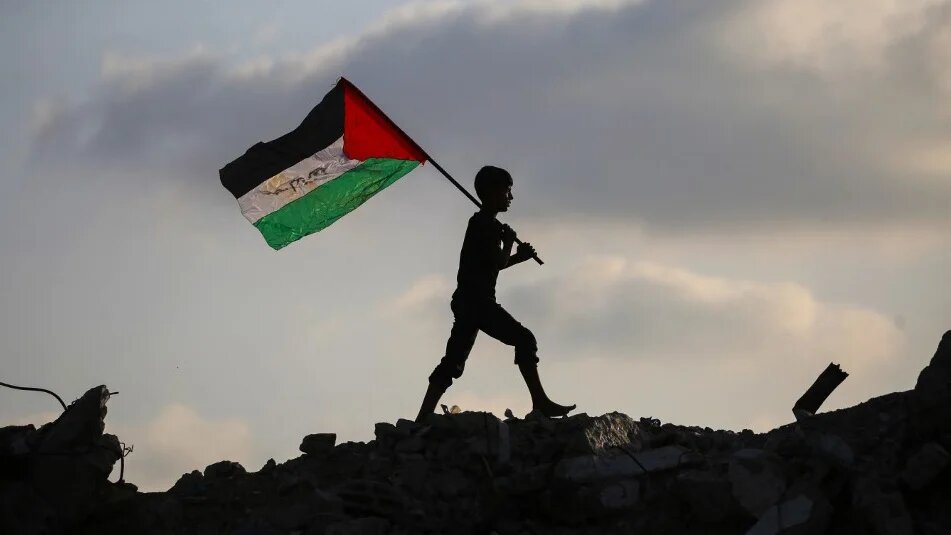Politics
Gaza Conflict Reaches Turning Point Amid International Fallout

The ongoing conflict in Gaza has reached a critical juncture, with reports indicating a potential end to hostilities. As the longest and deadliest war in the region’s history unfolds, the situation remains complex. President Donald Trump has positioned himself at the forefront of negotiations, suggesting a return of hostages and a possible formal declaration of peace, although significant disagreements persist. Israeli forces are expected to withdraw from major cities in Gaza, allowing for humanitarian aid to resume, but the future remains uncertain regarding the disarmament of Hamas and any international presence in the region.
Despite claims of substantial losses inflicted upon Hamas by Israeli military actions, the group maintains that it has preserved its operational capabilities. Trump recently asserted that Hamas has suffered nearly 25,000 casualties, yet the organization claims its command structure and resources remain intact. The resilience of Hamas is echoed by its supporters, who argue that the group has successfully countered Israeli strategies in what they view as a protracted struggle for survival.
The situation on the ground in Gaza has led to a surge in support for Hamas and other factions. The population has endured immense suffering, with widespread destruction of homes and infrastructure contributing to a humanitarian crisis. A long-term ceasefire, or hudna, hinges on Israeli withdrawal to the 1967 borders and an end to the occupation of Palestinian territories, including Gaza, the West Bank, and East Jerusalem.
As the narrative shifts, Israel’s international reputation has suffered significant damage. The country, historically viewed as a moral project by Western nations, is grappling with declining support. According to a recent poll conducted by The New York Times in collaboration with Siena University, for the first time, more Americans express sympathy for Palestinians than for Israelis. The survey revealed that 49% of respondents sided with Palestinians, while only 34% supported Israel. This change in public sentiment is reflected in increasing opposition to military and economic aid for Israel, with 60% of respondents advocating for an end to the conflict regardless of hostage situations.
The evolving landscape of social media has amplified these sentiments. Pro-Palestinian content has gained traction, overshadowing pro-Israel narratives. Research indicates that for every pro-Israel post, there are approximately 17 supporting Palestinian perspectives. This shift in public opinion, particularly among younger demographics, suggests a long-term transformation in attitudes toward the conflict.
Internationally, demonstrations across Europe signal a growing discontent with Israel’s actions. Events in countries traditionally supportive of Israel, such as the Netherlands, Spain, and Italy, have drawn large crowds advocating for Palestinian rights. Analyst Mouin Rabbani noted the unprecedented turnout in the Netherlands, where a quarter of a million people protested against perceived injustices in Gaza, indicating a significant shift in public opinion.
The implications of this changing dynamic extend to political and economic arenas. While support for Palestinian statehood is gaining momentum, the entrenched relationship between Israel and Western powers, particularly regarding military and financial assistance, complicates potential shifts in policy. Countries like Norway have begun to divest from Israeli companies, reflecting a growing willingness to challenge established norms.
As the conflict evolves, the future of Gaza remains precarious. Should a ceasefire be achieved, it is likely that tensions will not dissipate entirely. The potential for sporadic violence persists, particularly in the West Bank, where annexation efforts continue. The international community’s response will play a crucial role in shaping the trajectory of relations between Israel and Palestine.
In conclusion, the Gaza conflict represents a pivotal moment in the region’s history. The potential for a ceasefire does not equate to a resolution of underlying issues, and public sentiment is shifting dramatically. The long-term consequences of recent events will likely reverberate through international relations and domestic politics for years to come. As the narrative continues to evolve, it is clear that the quest for a sustainable peace will be fraught with challenges.
-

 Health3 months ago
Health3 months agoNeurologist Warns Excessive Use of Supplements Can Harm Brain
-

 Health3 months ago
Health3 months agoFiona Phillips’ Husband Shares Heartfelt Update on Her Alzheimer’s Journey
-

 Science1 month ago
Science1 month agoBrian Cox Addresses Claims of Alien Probe in 3I/ATLAS Discovery
-

 Science1 month ago
Science1 month agoNASA Investigates Unusual Comet 3I/ATLAS; New Findings Emerge
-

 Science4 weeks ago
Science4 weeks agoScientists Examine 3I/ATLAS: Alien Artifact or Cosmic Oddity?
-

 Entertainment4 months ago
Entertainment4 months agoKerry Katona Discusses Future Baby Plans and Brian McFadden’s Wedding
-

 Science4 weeks ago
Science4 weeks agoNASA Investigates Speedy Object 3I/ATLAS, Sparking Speculation
-

 Entertainment4 months ago
Entertainment4 months agoEmmerdale Faces Tension as Dylan and April’s Lives Hang in the Balance
-

 World3 months ago
World3 months agoCole Palmer’s Cryptic Message to Kobbie Mainoo Following Loan Talks
-

 Science4 weeks ago
Science4 weeks agoNASA Scientists Explore Origins of 3I/ATLAS, a Fast-Moving Visitor
-

 Entertainment4 months ago
Entertainment4 months agoLove Island Star Toni Laite’s Mother Expresses Disappointment Over Coupling Decision
-

 Entertainment3 months ago
Entertainment3 months agoMajor Cast Changes at Coronation Street: Exits and Returns in 2025









